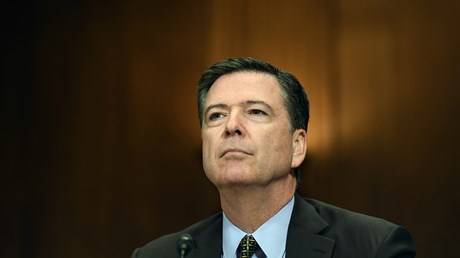How the former FBI director’s interest in Reinhold Niebuhr shaped his approach to political power.

Two months before he was fired, FBI director James Comey inadvertently revealed something about his theological leanings that may have pointed to his inevitable fallout with President Donald Trump.
In March, Gizmodo reporter Ashley Feinberg followed a string of clues to the Instagram and Twitter accounts of a user named after Reinhold Niebuhr, who she believed to be Comey. Many of the user’s tweets had to do with the FBI, including one linking to a report about a meeting between Michael Flynn, Jared Kushner, and a Russian emissary. But what tipped off this particular account was its user name.
While a student at the College of William and Mary, Comey wrote his undergraduate thesis on Niebuhr. The Protestant theologian seems to have left an impression, judging from Comey’s references to him in public speeches and from this apparent pseudonym. Within a few days of Feinberg’s article, the owner shut the accounts down, though not before sending one last tweet that seemed to confirm the identification: a link to FBIjobs.gov—perhaps a job offer to Feinberg—and a quote from the movie Anchorman: “Actually I’m not even mad. That’s Amazing.”
Together with my colleague Sylvester Johnson, I published a book about the FBI and religion a few weeks before Feinberg outed Comey’s social media accounts. Our book traces the history of the FBI’s interaction with different religious communities and addresses the beliefs of some of its leaders and agents. I realized that Comey and Niebuhr were a part of the story we were trying to tell.
Niebuhr’s moral pragmatism
As Gene Zubovich notes, politicians caught trying to balance moral idealism and clear-eyed realism often look to Niebuhr, …
Continue reading…
